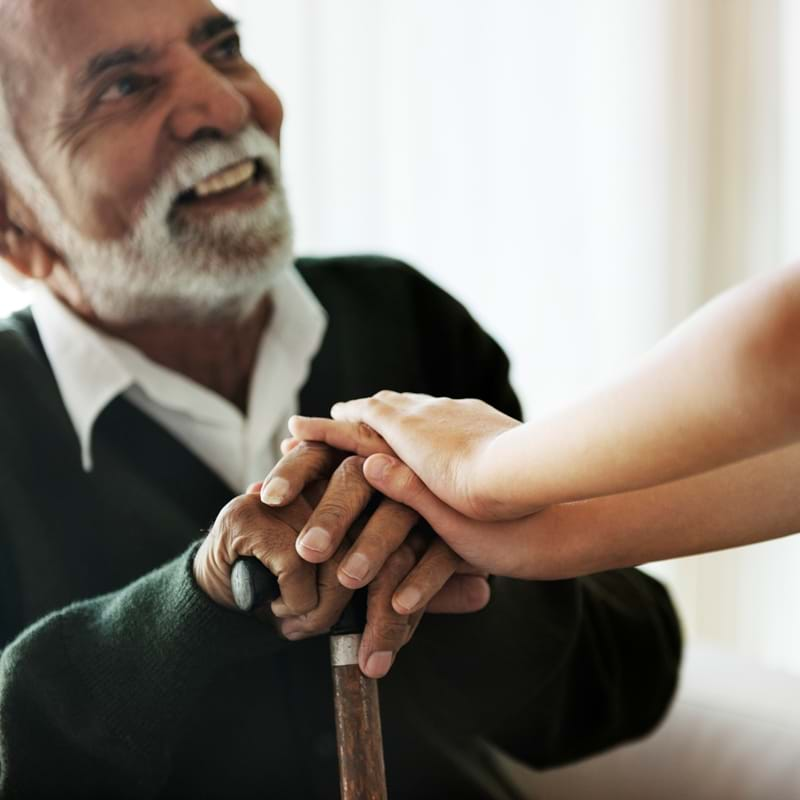What is safeguarding?
Safeguarding refers to the actions taken to protect children, young people and vulnerable adults from abuse and neglect so they can live in safety. It involves people and organisations like LHP working together to stop this happening and tackling it where it does.
Safeguarding is everyone’s responsibility, and if you have a concern, you must report it.
What is abuse and neglect?
There are many different types of abuse or neglect that a person may experience. Examples of the different types and their definitions can be found below.
Types of abuse
| Type of abuse | Key signs to look for |
|---|---|
| Physical abuse | Including hitting, slapping, pushing, kicking, misuse of medication, misuse of restraint, or inappropriate behaviour. |
| Sexual abuse | Including rape and sexual assault, or sexual acts to which the person has not consented, or could not consent, or where pressure was applied to secure their consent. |
| Emotional abuse | Including verbal abuse, psychological abuse, threats, deprivation of contact, humiliation, blaming, controlling, intimidation, coercion, harassment, isolation or withdrawal from services or supportive networks. |
| Financial or material abuse | Including theft, fraud, exploitation, pressure in connection with wills, property, inheritance, financial transactions, the misuse or misappropriation of property, possessions or benefits. |
| Domestic abuse | Psychological, physical, sexual, financial, emotional abuse and so called 'honour' based violence. |
| Neglect (including acts of omission) | Including ignoring medical or physical care needs, failure to provide access to appropriate health, social care or educational services, the withholding of the necessities of life, such as medication, food, drink and heating. |
| Self-neglect | Covers a wide range of behaviour including neglecting to care for one's personal hygiene, health or surroundings and behaviour such as hoarding. |
| Discriminatory abuse | Including racist or sexist remarks or comments based on a person's impairment, disability, age or illness, gender reassignment, sex and sexual preferences, religious beliefs/domination, race, marriage/civil partnership, pregnancy and other forms of harassment, slurs or similar treatments. |
| Mate crime | Happens when someone is faking a friendship in order to take advantage of a vulnerable person. Mate crime is committed by someone known to the person. They might have known them for a long time or met recently. A 'mate' may be a 'friend', family member, supporter, paid staff or another person with a disability. |
| Hate crime | Is defined as any crime that is perceived by the victim, or any other person, to be racist, homophobic or due to a person's religion, belief, gender identity or disability. It should be noted that this definition is based on the perception of the victim or anyone else and is not reliant on evidence. |
| Modern slavery | Encompassing slavery, human trafficking, forced labour and domestic servitude. Traffickers and slave masters use whatever means they have at their disposal to coerce, deceive and force individuals into life of abuse, servitude and inhumane treatment. |
| Exploitation by radicalisers who promote violence | Involves the exploitation of susceptible people who are drawn into violent extremism by radicalisers. Violent extremists often use a persuasive rationale and charismatic individuals to attract people to their cause. The aim is to attract people to their reasoning, inspire new recruits and embed their extreme views and persuade vulnerable individuals of the legitimacy of their cause. The Prevent Strategy, launched in 2007, seeks to stop people becoming terrorists or supporting terrorism |
What should I do if I feel someone is being abused?
If you feel someone is in immediate danger you must call 999, and/or call the police on 101 if you think a crime has been committed.
If you have any other safeguarding concerns, please contact your local authority:
North East Lincolnshire Council
Concerns about a child – (01472) 326292 (option 2)
Concerns about an adult – (01472) 256256
Lincolnshire County Council
Customer Service Centre
01522 782 111
8.45am – 5.15pm
Out-of-hours emergencies
01522 782 333
